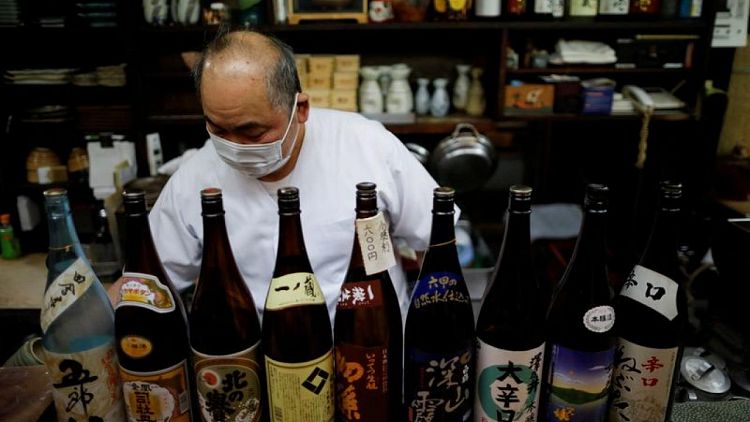By Leika Kihara
TOKYO - Japan's corporate services prices rose at the fastest annual pace in eight months in May, data showed on Thursday, adding to growing signs the world's no. 3 economy is gradually emerging from last year's devastating impact of the coronavirus pandemic.
While the gain was due largely to the base effect of last year's slump, rising hotel and transportation fees showed a resumption of economic activity and rising raw material costs were keeping Japan from sliding back into sustained deflation.
"The impact of state of emergency curbs wasn't as large as the same period last year," Shigeru Shimizu, head of the BOJ's price statistics division, told a briefing. "Some regions saw tourists return during Japan's Golden Week holidays."
The services producer price index - the price firms charge each other for services - rose 1.5% in May from the same month a year ago, the third straight monthly gain and the fastest pace of increase since September last year, Bank of Japan data showed.
Television advertising fees surged a record 35% in May from a year earlier, due largely to the base effect of last year's plunge. Overseas freight costs were up a record 34%, reflecting a spike in fuel costs and robust China-bound shipping demand, the data showed.
Hotel bills were up 0.3%, marking the first rise in two years, as some domestic tourist destinations saw a rebound in visitors despite state of emergency curbs imposed in some prefectures during May.
The data showed the number of components in the index that saw prices rise stood at 76 in May, up 15 from April - a sign inflationary pressures were broadening.
There is uncertainty, however, on whether the rise in wholesale prices will lead to higher consumer inflation. Companies remain wary of passing on increasing costs to households due to sluggish domestic demand.
Japan's core consumer prices rose 0.1% in May from a year earlier, their first such gain in more than a year but due largely to a rebound in energy prices.
The Japanese economy shrank an annualised 3.9% in the first quarter, and many analysts expect any rebound to be modest in April-June as state of emergency curbs to combat the pandemic cool consumption.
The government has now eased restrictions, but said it would maintain 'quasi-emergency' measures in some areas, including Tokyo, until July 11 to prevent infections from rising ahead of the Tokyo Olympic Games starting on July 23.



